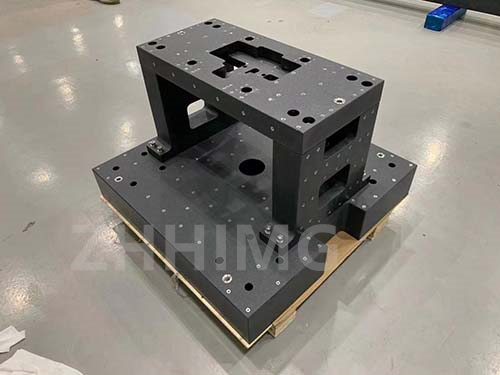Granite is a popular choice for precision components in high-precision measurement and machining due to its exceptional hardness and strength. With a hardness rating of 6-7 on the Mohs scale, granite is known for its durability and resistance to wear and tear, making it an ideal material for applications requiring stable performance and accuracy.
In comparison to marble, granite offers superior hardness and strength, which are crucial factors in supporting stable performance in high-precision measurement and machining. The hardness of granite ensures that the components can withstand the rigors of precision machining without succumbing to wear, deformation, or damage. This is particularly important in applications where dimensional accuracy and stability are paramount.
The strength of granite also plays a key role in supporting stable performance in high-precision measurement and machining. The material's ability to maintain its structural integrity under heavy loads and extreme conditions is essential for ensuring consistent and reliable performance of precision components. This is especially critical in applications where any deviation or instability could lead to compromised accuracy and quality.
Furthermore, the inherent stability of granite contributes to its suitability for high-precision applications. Its resistance to temperature fluctuations, vibrations, and external forces helps maintain the precision and accuracy of measurement and machining processes, ensuring consistent and reliable results.
Overall, the hardness and strength of granite make it an excellent choice for precision components in high-precision measurement and machining. Its ability to withstand wear, maintain structural integrity, and provide stability contributes to the reliable performance of precision equipment and machinery. As a result, granite continues to be a preferred material for applications where precision, accuracy, and stability are of utmost importance.
Post time: Sep-06-2024

